David Emerson - Overcoming Trauma through Yoga: Reclaiming Your Body
Here you can read online David Emerson - Overcoming Trauma through Yoga: Reclaiming Your Body full text of the book (entire story) in english for free. Download pdf and epub, get meaning, cover and reviews about this ebook. year: 2011, publisher: North Atlantic Books, genre: Religion. Description of the work, (preface) as well as reviews are available. Best literature library LitArk.com created for fans of good reading and offers a wide selection of genres:
Romance novel
Science fiction
Adventure
Detective
Science
History
Home and family
Prose
Art
Politics
Computer
Non-fiction
Religion
Business
Children
Humor
Choose a favorite category and find really read worthwhile books. Enjoy immersion in the world of imagination, feel the emotions of the characters or learn something new for yourself, make an fascinating discovery.
- Book:Overcoming Trauma through Yoga: Reclaiming Your Body
- Author:
- Publisher:North Atlantic Books
- Genre:
- Year:2011
- Rating:4 / 5
- Favourites:Add to favourites
- Your mark:
Overcoming Trauma through Yoga: Reclaiming Your Body: summary, description and annotation
We offer to read an annotation, description, summary or preface (depends on what the author of the book "Overcoming Trauma through Yoga: Reclaiming Your Body" wrote himself). If you haven't found the necessary information about the book — write in the comments, we will try to find it.
Survivors of traumawhether abuse, accidents, or warcan end up profoundly wounded, betrayed by their bodies that failed to get them to safety and that are a source of pain. In order to fully heal from trauma, a connection must be made with oneself, including ones body. The trauma-sensitive yoga described in this book moves beyond traditional talk therapies that focus on the mind, by bringing the body actively into the healing process. This allows trauma survivors to cultivate a more positive relationship to their body through gentle breath, mindfulness, and movement practices.
Overcoming Trauma through Yoga is a book for survivors, clinicians, and yoga instructors who are interested in mind/body healing. It introduces trauma-sensitive yoga, a modified approach to yoga developed in collaboration between yoga teachers and clinicians at the Trauma Center at Justice Resource Institute, led by yoga teacher David Emerson, along with medical doctor Bessel van der Kolk. The book begins with an in-depth description of trauma and post-traumatic stress disorder (PTSD), including a description of how trauma is held in the body and the need for body-based treatment. It offers a brief history of yoga, describes various styles of yoga commonly found in Western practice, and identifies four key themes of trauma-sensitive yoga. Chair-based exercises are described that can be incorporated into individual or group therapy, targeting specific treatment goals, and modifications are offered for mat-based yoga classes. Each exercise includes trauma-sensitive language to introduce the practice, as well as photographs to illustrate the poses. The practices have been offered to a wide range of individuals and groups, including men and women, teens, returning veterans, and others. Rounded out by valuable quotes and case stories, the book presents mindfulness, breathing, and yoga exercises that can be used by home practitioners, yoga teachers, and therapists as a way to cultivate awareness, tolerance, and an increased acceptance of the self.
David Emerson: author's other books
Who wrote Overcoming Trauma through Yoga: Reclaiming Your Body? Find out the surname, the name of the author of the book and a list of all author's works by series.

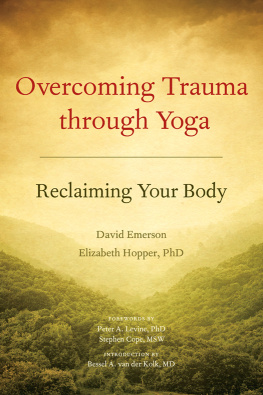

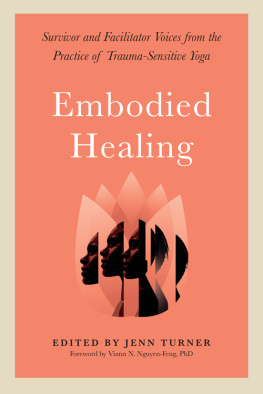
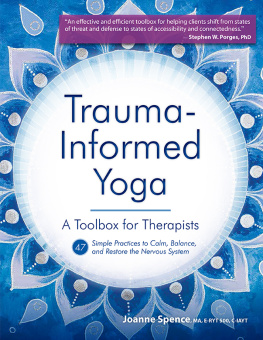
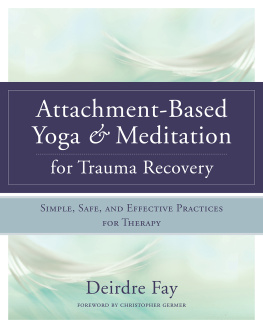
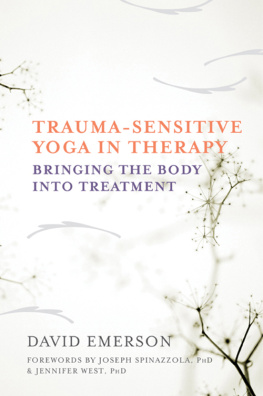
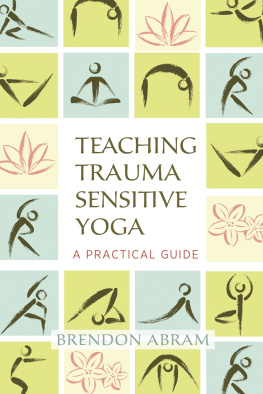
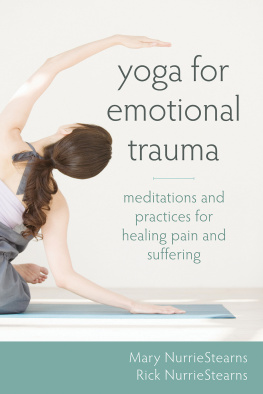
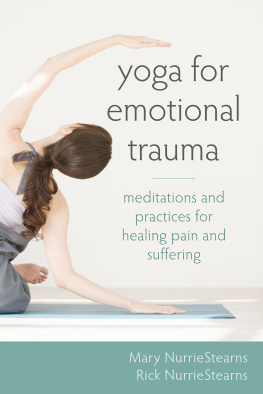

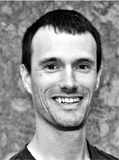 A registered yoga teacher, David Emerson is the director of yoga services at the Trauma Center at Justice Resource Institute in Brookline, Massachusetts. In 2003 he collaborated with Bessel van der Kolk, MD, the founder and medical director of the Trauma Center, to create the Trauma Center Yoga Program, which includes classes and teacher training programs. Emerson currently leads trainings for yoga teachers and clinicians interested in offering trauma-sensitive yoga to their clients.
A registered yoga teacher, David Emerson is the director of yoga services at the Trauma Center at Justice Resource Institute in Brookline, Massachusetts. In 2003 he collaborated with Bessel van der Kolk, MD, the founder and medical director of the Trauma Center, to create the Trauma Center Yoga Program, which includes classes and teacher training programs. Emerson currently leads trainings for yoga teachers and clinicians interested in offering trauma-sensitive yoga to their clients. Elizabeth Hopper, PhD, is a licensed clinical psychologist with a specialization in traumatic stress and has worked with trauma survivors for the past fourteen years. She is a staff psychologist, supervisor, and the associate director of training at the Trauma Center at Justice Resource Institute. Dr. Hopper is also the director of Project REACH, a program that serves survivors of human trafficking throughout the United States. She offers national training and consultation on traumatic stress and alternative interventions for trauma survivors.
Elizabeth Hopper, PhD, is a licensed clinical psychologist with a specialization in traumatic stress and has worked with trauma survivors for the past fourteen years. She is a staff psychologist, supervisor, and the associate director of training at the Trauma Center at Justice Resource Institute. Dr. Hopper is also the director of Project REACH, a program that serves survivors of human trafficking throughout the United States. She offers national training and consultation on traumatic stress and alternative interventions for trauma survivors.